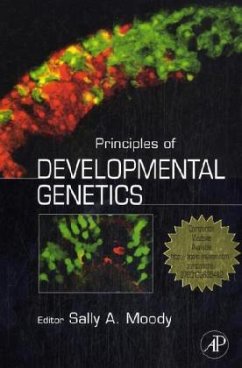
Genetics and Auditory Disorders

PAYBACK Punkte
58 °P sammeln!
Genetics is fundamental to hearing function, and an understanding of genetics enhances both auditory research and the clinical treatment of the hearing impaired. Approaches to the diagnosis and treatment of hearing impairment have developed from technological advances in genetic research. This volume covers gene expression, mutations, mapping and cloning, as well as mitochondrial and cellular genetics. Chapters are also included on the uses of mouse models, genetic epidemiology and genetic counseling specifically for hearing impairment. As a comprehensive review of the genetics of hearing, thi...
Genetics is fundamental to hearing function, and an understanding of genetics enhances both auditory research and the clinical treatment of the hearing impaired. Approaches to the diagnosis and treatment of hearing impairment have developed from technological advances in genetic research. This volume covers gene expression, mutations, mapping and cloning, as well as mitochondrial and cellular genetics. Chapters are also included on the uses of mouse models, genetic epidemiology and genetic counseling specifically for hearing impairment. As a comprehensive review of the genetics of hearing, this book will interest hearing researchers, clinicians and genetic counselors.














